Don’t bother typing his name into a Google Image search or trying to find his Instagram handle, New York MC Billy Woods doesn’t show his face in videos, interviews or photos.
“I enjoy anonymity just as a human being that’s kind of my speed anyway,” Billy explains, “I don’t think I’d be doing better if people looked at my face, and since it’s my natural inclination to rather be private, it works.”
This is also a result of the time in which Billy grew up when listeners didn’t have the access to artists like they do now. “I do think that there’s sometimes something lost from an era where like I didn’t think, ‘Does Ghostface get up in the morning and drink a chai coffee?’ These are normal things that make sense and I’m not encouraging anybody to do anything different, I’m just explaining where I come from. It’s like you didn’t know, maybe Ghostface gets up and polishes his golden armband and then shoots his way out of a Fuddruckers you didn’t know what was going on.”
Just like he knew his idols only from the music they made, his fans know him in the same way. His hidden identity is not an issue because he didn’t start making music for vanity’s sake or a craving for fame, “When I was young I remember my mother telling me, ‘Edgar Allen Poe died penniless in a gutter’ and I was like well, for better or worse, I always understood that artistic achievement would not always bring financial remuneration.”
After making music for nearly 15 years Billy has a handful of great albums under his belt and he’s developed a solid fanbase, though his identity is still largely a secret. He is himself a Known Unknown, which is the title of his latest album. “It has a lot to do with identity, truth as a concept. Our true selves, if such a thing can exist, and the self we present to others and where do those things meet and/or diverge.”
His inspiration to explore this concept came from an unlikely place: a 2004 press conference in which Donald Rumsfeld used these vague terms to dodge questions from reporters. “Everyone was clowning him and I thought it was definitely a good example of dissembling in the wake of the Iraq War disaster and then I can’t remember why I was thinking about it more and I was like it is an interesting idea there’s merit to the overall idea that he’s addressing here.”
This concept stuck with him and now years later it’s still an idea he wanted to explore. “The idea of known unknowns is interesting to me the concept of Johari’s window that’s where the phrase sort of comes from is a thought experience about how we can make decisions about future events.”
Heady concepts like this demonstrate that Billy is not your average rapper, and that individuality extends to his lyrical abilities. “I play around with the beat a lot normally while I’m rapping.” However, on his latest record he wanted to something that was unconventional for him: make a more conventional record.
“I like to challenge myself and make things more interesting and do things differently in the hopes of both getting better as an artist and also making a work that is in some way different or stands apart from what I did before” While Billy’s style is far from ordinary, he tried to fit himself into the classic rap album structure. “This was the first album I ever did where every song has a chorus everything had multiple verses, and this is me just coming off of something where like some of the songs are 30 seconds, so it was different.”
His thought process when making the album was, “I’m gonna make a record reflective of a certain from my own fandom and rap appreciation, where it’s like record a bunch of songs and put the best songs on an album.”
He was assisted in this process by a stellar lineup of collaborators including indie-rap mainstay Aesop Rock. “I was hanging out with him [Aesop Rock] and he was like, ‘You gotta rap on beat,’ and I was like fuck it you know it’s always good to challenge yourself to do different things.” Billy knew, when Aesop gives you musical advice it’s best to take it under advisement. “He, in my opinion, is one of the more technically gifted rappers. There are certain rappers that are like a rapper’s rapper, like this dude could do probably 100 different flows no problem.” Aesop didn’t just contribute to Billy’s lyrical approach, but he also produced a couple tracks on the album. “He gets some crazy drums and his shit is like rap centered,” being an MC himself Aesop knows what a rapper is looking for in a beat, “it’s all hooked up for rapping that’s about as simple as I can put it.”
Like many of the contributors on this album, they aren’t just collaborators but Billy’s friends. He refers to Aesop as, “great dude who has been super kind and supportive of me and really taken time out when he doesn’t need to.”
The majority of the production on this album is another one of his friends and longtime collaborators Blockhead. “His beats can often be a challenge for me which is good.” While Billy is also a fan of simple production with a looped sample, Blockhead’s compositional prowess helped take Billy’s writing to another level. “Sometimes there’ll be a beat where I’m like, ‘eh I like this little part but not the other changeup.’ But then it makes me have to like figure out how to make it work. He’s got a great musical ear.” The result is the most accessible presentations of Billy’s hard-hitting and innovative style.
Though much of his music comments on political issues, he doesn’t see it as being politically focused. “I don’t think of myself as a political rapper, but I don’t have that division in my life between politics and the personal. I just don’t think that way. I’m always surprised when I hear someone say, ‘let’s not talk about politics,’ that’s like if someone said let’s not talk about movies or let’s not talk about food, it would seem odd.” He doesn’t want his work to be tied to any particular time period, but rather ring true throughout the ages. “If you’re doing something that’s really meaningful one would hope it should always be meaningful.”
Not only does he stylistically pay homage to his heroes, but he attempts to use his music to mirror the impact that they had in his life. “I wanted to do some shit like the things that I read and encountered growing up where you’re like man this person is dead, but I just read this and it just changed my perception of the world.”
Facebook | Twitter | Bandcamp


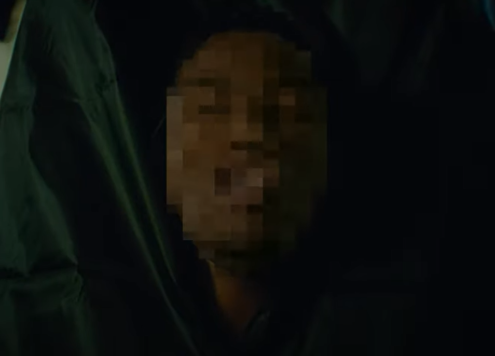
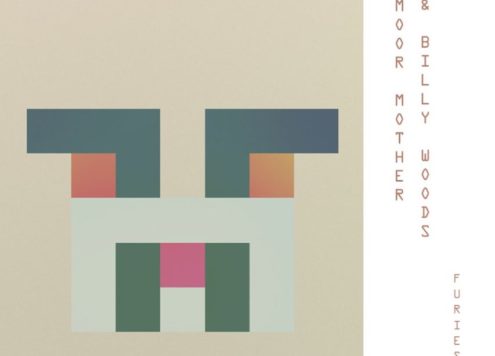
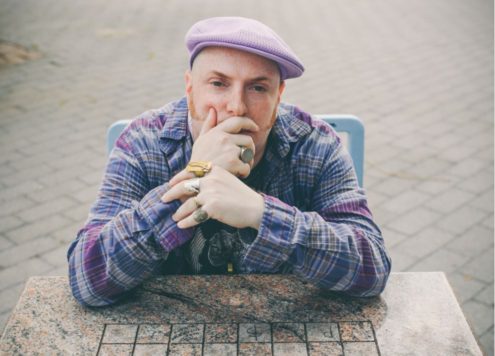

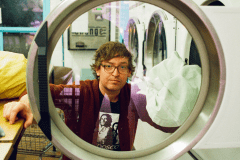

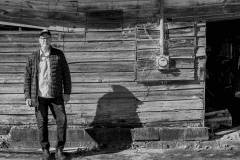

Social Media